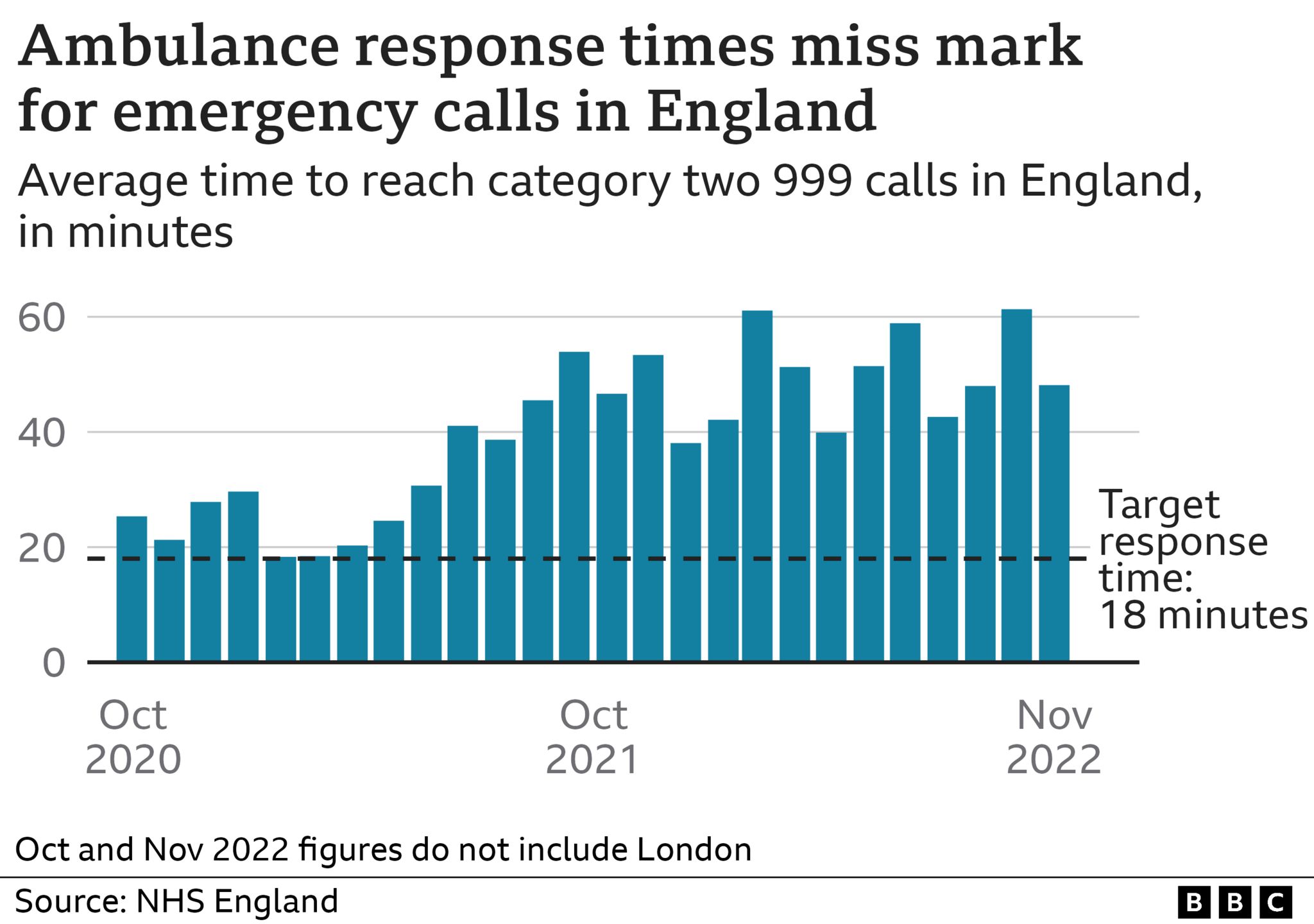The family of a father-of-five, 68, had to drive him to hospital last November after a heart attack.
 Image source, Other
Image source, OtherAmbulance bosses have apologised to the family of a man who died after he had a heart attack but no ambulance came.
Martin Clark, 68, started suffering with chest pains at his home in East Sussex on 18 November – before any strike action started in the NHS.
His family rang three times for an ambulance and after waiting 45 minutes drove him in their car to hospital.
When they arrived, the father of five went into cardiac arrest and, despite receiving medical attention, died.
His wife, Ann, said he had been crying out in pain and at one point wrote a note saying: “I don’t think I’m going to make it. Love you.”

Image source, Other
Ms Clark told the BBC’s Breakfast programme she constantly wondered what would have happened had an ambulance arrived quickly.
Her husband had had high blood pressure but had been a “fit man”.
“He didn’t drink. He didn’t smoke. He walked every day. That day, he was out there with a chainsaw, cutting the hedge,” she said.
“He was let down very badly. They should have come.
“The NHS is broken. Everybody is scared if they get ill where can they turn. Something needs to change – there’s going to be so many deaths because of this. It’s terrible.”
The South East Ambulance Service said: “We are very sorry we were unable to provide a timely response to Mr Clark. Our thoughts are with his family and we will look into this.
“We are working hard to respond to everyone who needs us as quickly as possible while our services remain under significant pressure.”

The ambulance calls
- 16:58 – Ms Clark calls 999
- 17:30 – A second 999 call makes clear Mr Clark’s condition has worsened
- 17:45 – In a third 999 call, the family say they will drive him to hospital themselves, only to be told by the ambulance service: “We don’t recommend you do that”
- 17:55 and 18:01 – The ambulance service ring the home phone back, after the family have left for the hospital, and leave a voicemail saying it has still not identified an ambulance

Ambulance services are meant to reach emergencies such as heart attacks within 18 minutes on average.
During November, the month Mr Clark died, the South East service averaged just over 34 minutes for such category-two calls.
This was actually better than the national average for that month, just over 48 minutes.
Ambulance response times have worsened dramatically over the past two years.

The Healthcare Safety Investigations Branch, which investigates incidents in the NHS, has previously warned about the risk to patients.
One of the key problems is the long delays crews face at accident and emergency units.
The handover of patients should be done within 15 minutes – but in November, a third of handovers took more than 30 minutes.
By the end of the December, this had risen to more than 40%.
Unions say patient safety is one of the key reasons ambulance staff are striking. Wednesday saw the second walkout of the winter by crews in England and Wales.
‘Extreme delays can’t be new normal’
Dr Sonya Babu-Narayan, of the British Heart Foundation (BHF), said cases such as the Clarks’ were “incredibly distressing”.
“The difference between life and death can be a matter of minutes when someone is having a heart attack or stroke,” she said.
“Extreme delays to emergency heart and stroke care cannot become a new normal.
“Healthcare staff are doing all they can – but there aren’t enough of them and many will be working in difficult conditions without fit-for-purpose facilities.
“There are no easy solutions but there is a way out of this crisis – if the NHS gets the significant investment it needs to address the vast backlog of heart care.
“It’s also vital that we get prevention back on track to stop heart attacks and strokes from happening in the first place.”
The Department of Health and Social Care said it could not comment on individual cases but recognised the pressures the NHS was facing following the pandemic and was “working tirelessly” to ensure people received the care they needed.
This included an extra £750m being invested this winter to free up hospital beds and unlock some of the delays in the emergency-care system.